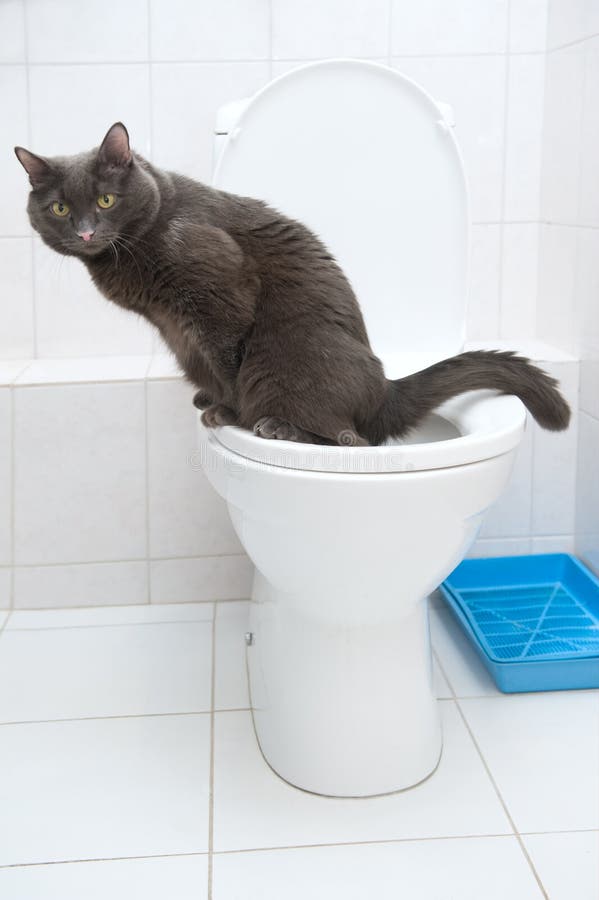Never Flush Cat Poop Down Your Toilet - Protect Your Pipes Infrastructure
Never Flush Cat Poop Down Your Toilet - Protect Your Pipes Infrastructure
Blog Article
We've stumbled upon this great article involving Can You Flush Cat Poop Down The Toilet? listed below on the internet and felt it made perfect sense to talk about it with you on this site.

Introduction
As feline proprietors, it's essential to bear in mind just how we deal with our feline pals' waste. While it might appear convenient to flush feline poop down the commode, this practice can have harmful effects for both the setting and human health.
Alternatives to Flushing
Thankfully, there are more secure and extra responsible ways to get rid of pet cat poop. Take into consideration the following options:
1. Scoop and Dispose in Trash
The most typical approach of disposing of pet cat poop is to scoop it into a biodegradable bag and throw it in the trash. Be sure to use a devoted litter scoop and deal with the waste quickly.
2. Use Biodegradable Litter
Choose naturally degradable feline litter made from materials such as corn or wheat. These litters are environmentally friendly and can be safely dealt with in the trash.
3. Bury in the Yard
If you have a backyard, take into consideration hiding pet cat waste in a marked location far from vegetable gardens and water sources. Be sure to dig deep enough to avoid contamination of groundwater.
4. Mount a Pet Waste Disposal System
Buy a pet dog garbage disposal system particularly created for feline waste. These systems use enzymes to break down the waste, reducing smell and ecological effect.
Health Risks
In addition to environmental problems, purging feline waste can likewise pose wellness threats to people. Cat feces might have Toxoplasma gondii, a parasite that can cause toxoplasmosis-- a possibly serious illness, particularly for expectant ladies and individuals with damaged immune systems.
Ecological Impact
Flushing cat poop introduces unsafe virus and parasites into the water supply, presenting a significant threat to marine ecosystems. These impurities can negatively influence marine life and compromise water high quality.
Conclusion
Liable animal possession extends beyond giving food and shelter-- it likewise involves correct waste administration. By avoiding flushing pet cat poop down the bathroom and going with alternative disposal approaches, we can minimize our ecological impact and safeguard human wellness.
Why Can’t I Flush Cat Poop?
It Spreads a Parasite
Cats are frequently infected with a parasite called toxoplasma gondii. The parasite causes an infection called toxoplasmosis. It is usually harmless to cats. The parasite only uses cat poop as a host for its eggs. Otherwise, the cat’s immune system usually keeps the infection at low enough levels to maintain its own health. But it does not stop the develop of eggs. These eggs are tiny and surprisingly tough. They may survive for a year before they begin to grow. But that’s the problem.
Our wastewater system is not designed to deal with toxoplasmosis eggs. Instead, most eggs will flush from your toilet into sewers and wastewater management plants. After the sewage is treated for many other harmful things in it, it is typically released into local rivers, lakes, or oceans. Here, the toxoplasmosis eggs can find new hosts, including starfish, crabs, otters, and many other wildlife. For many, this is a significant risk to their health. Toxoplasmosis can also end up infecting water sources that are important for agriculture, which means our deer, pigs, and sheep can get infected too.
Is There Risk to Humans?
There can be a risk to human life from flushing cat poop down the toilet. If you do so, the parasites from your cat’s poop can end up in shellfish, game animals, or livestock. If this meat is then served raw or undercooked, the people who eat it can get sick.
In fact, according to the CDC, 40 million people in the United States are infected with toxoplasma gondii. They get it from exposure to infected seafood, or from some kind of cat poop contamination, like drinking from a stream that is contaminated or touching anything that has come into contact with cat poop. That includes just cleaning a cat litter box.
Most people who get infected with these parasites will not develop any symptoms. However, for pregnant women or for those with compromised immune systems, the parasite can cause severe health problems.
How to Handle Cat Poop
The best way to handle cat poop is actually to clean the box more often. The eggs that the parasite sheds will not become active until one to five days after the cat poops. That means that if you clean daily, you’re much less likely to come into direct contact with infectious eggs.
That said, always dispose of cat poop in the garbage and not down the toilet. Wash your hands before and after you clean the litter box, and bring the bag of poop right outside to your garbage bins.
https://trenchlesssolutionsusa.com/why-cant-i-flush-cat-poop/
As a serious person who reads on Don’t flush cat feces down the toilet, I think sharing that editorial was beneficial. Do you know about anybody else who is excited about the niche? Do not hesitate to share it. We appreciate reading our article about Don’t flush cat feces down the toilet.
View More Report this page